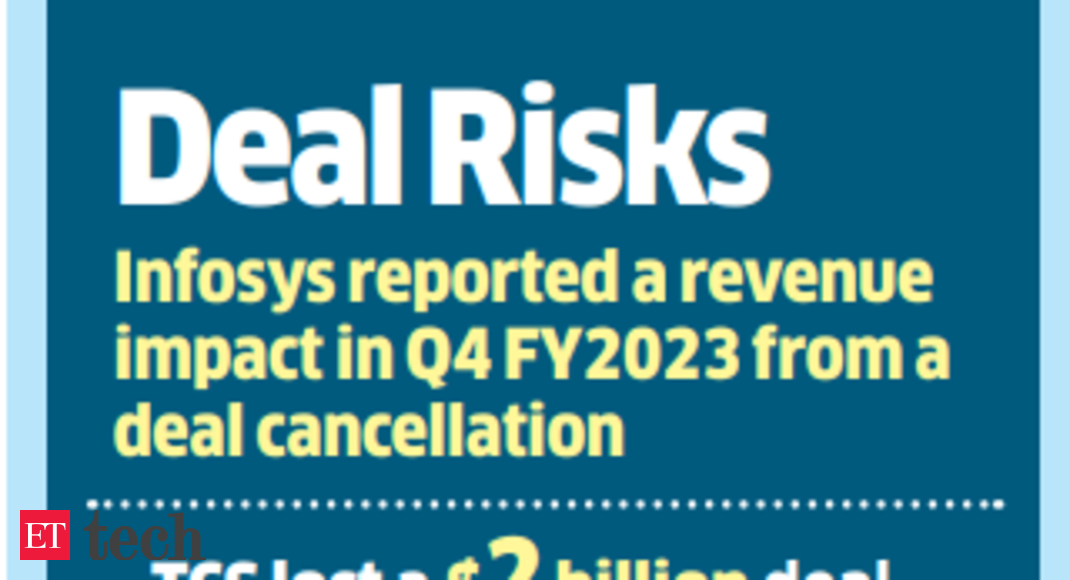The increasing number of large deal cancellations and rampdowns by technology clients have led to a cautious approach by large IT firms given that the macroeconomic situation continues to be challenging and uncertain, said experts. In the recent past, most IT majors have disclosed instances of deal rampdowns and cancellations. Infosys said in the fourth quarter of last fiscal that it suffered a revenue impact from a large deal cancellation. In June, Tata Consultancy Services (TCS) said that it had lost a $2 billion deal with Transamerica halfway into the decade-long deal execution cycle. Analysts are of the opinion that while this is a one-off case in terms of a large provider losing a large deal, it will put IT vendors on the defensive when it comes to pursuing large deals.
“We expect to see more of the IT majors going for staggered deals or at comparatively lower deal duration (up to 5 years) with opportunities to expand the deal at a later stage,” said outsourcing expert Pareekh Jain. He added that long-term large deals are generally priced at aggressive discounts with the margin benefits of such deals coming in towards the later half of the deal execution. “Hence it makes sense for vendors to be cautious about such deals while the spending environment remains uncertain,” said Jain.
However, analysts expect a bulk of the shift in deals and vendor consolidation to happen across smaller deals. “Typically, during such times, clients focus on vendor consolidation could result in some revenue loss from clients at the bottom of the pyramid (typically revenues of less than $1 million),” said Spencer Ng, analyst at S&P Global Ratings.
At the same time, analysts have called out that large deals are definitely still coming up in the market. Companies will have to look at more technology-enabled partnerships with their clients to get a slice of the large deal pie in this uncertain environment.
Constellation Research founder Ray Wang expects clients across the board to reevaluate their services landscape. “We will see some folks cancel contracts, other folks will be consolidating contracts, and others will be trying out boutique providers for their industry-specific or AI capabilities,” said Wang. He added that there is a strong shift in technology investments to more AI/ML, analytics, data, and integration at the moment.
Jain, quoted earlier, added that Indian IT majors will see some benefits from the demand for technologies like generative AI when it comes to large deals. “Just like Indian majors had seen a positive shift in market share when the digital demand came in around five years back, we will see a similar uptick when it comes to generative AI. Large deals are increasingly coming with requests for an AI component where these large Indian IT vendors will have an advantage,” he said.
“For medium- to long-term (1-2 years), we believe investors should add high-quality names like TCS, Infosys, and Persistent that are building strong partnerships with key technology players globally, have consistent strong management execution, ability to win large cost optimization deals during weak macros and have a laser focus to harp on the digital transformation opportunity for its clients,” said a Q1 preview note by ICICI Securities.











